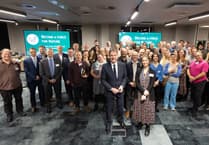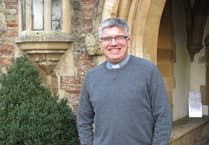Low traffic neighbourhoods planned in Bath and Bristol will continue despite the Prime Minister “slamming the brakes” on such schemes.
Three traffic control measures are currently in place in Bath and North East Somerset on a trial basis, with five more expected within months, as Bath and North East Somerset Council aims to deliver 15 low traffic neighbourhoods over the next few years. In Bristol, a huge liveable neighbourhood is planned, introducing traffic restrictions in part of the east of the city.
Prime Minister Rishi Sunak has said he will review council’s low traffic neighbourhoods, as he says: “I’m slamming the brakes on the war on motorists.” But the West of England Combined Authority (WECA) say they will “crack on” with ones currently planned in the region.
In an interview with The Sun’s Harry Cole last week Mr Sunak said: “What we want to do now is make sure that all these hare-brained schemes forced on local communities — whether its low traffic neighbourhoods, whether its blanket 20mph speed limits, all of that — we need to stop.”
He added that there were areas around schools where such measures made sense, but said: “These things shouldn’t be done in a blanket way; they shouldn’t be done without the consent of local people. That’s what we are going to stop.”
But speaking at a WECA scrutiny committee on October 2, head of capital delivery Malcolm Parsons said: “The Department for Transport have said they will review future allocations, and they are reviewing low traffic neighbourhoods. We are taking that as therefore we can crack on with what we are doing.”
He added that the funding for schemes in Bath and North East Somerset, Bristol, and South Gloucestershire had already been allocated as part of the region’s “city region sustainable transport settlement” (CRSTS) — a £540m government funding package for improving transport in the West of England. He said: “We will continue with the delivery of those low traffic neighbourhoods in our CRSTS settlement.
“Future funding for low traffic neighbourhoods are subject to review, not current funding.”
LDRS, John Wimperis




